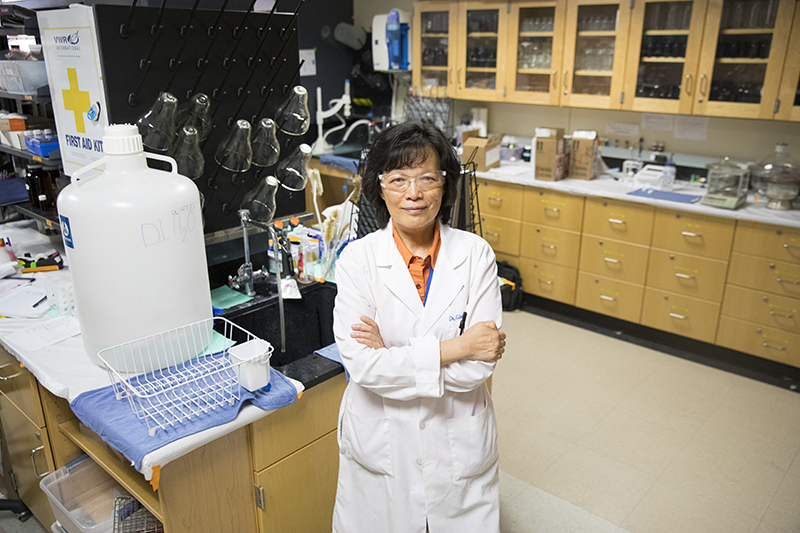UTEP Professor’s Prostate Cancer Detection Test Could Limit Blood Tests, Unnecessary Biopsies
Last Updated on July 22, 2019 at 12:00 AM
Originally published July 22, 2019
By UC Staff
UTEP Communications
Wen-Yee Lee, Ph.D., associate professor of chemistry at The University of Texas at El Paso, has developed an affordable early screening test for prostate cancer. The test uses a small urine sample and, in the future, could be developed as a kit similar to the home pregnancy test.

Lee and co-inventor Qin Gao, Ph.D., a postdoctoral researcher in chemistry at UTEP, are developing a non-invasive, urine-based prostate cancer diagnosis and prognosis method. The method uses 1 milliliter of urine, which is tested for organic metabolites using gas chromatography and mass spectrometry. The metabolite profiles are further analyzed through a statistical process to develop a diagnostic model for detection of prostate cancer. The methods developed through their research can also be applied to detection of other genitourinary cancers. Currently, the pair have successfully applied the method in early detection of prostate and kidney cancer.
The test, known as application of urinary volatile organic compounds (VOC), is about 92% accurate. It is currently pending patent approval and is expected to enter the market in the next five years. Funding for research has come from various grants including the National Institutes of Health (NIH) and a gift fund from UTEP alumnus Keelung Hong, Ph.D., founder of Taiwan Liposome Company.
Lee says prostate cancer screening using serum prostate-specific antigen (PSA) testing has caused unnecessary biopsies and overdiagnosis owing to its low accuracy and reliability.
The first step in getting screened for prostate cancer is a PSA blood test that is ordered by a physician. If the PSA results come back positive, the next step is a biopsy, an often painful process that produces the risk of infection for a patient and is, at times, unnecessary as results frequently come back negative. Lee said her test has the potential to save the health care system more than a half-billion dollars.
“The application of urinary metabolites for cancer detection test is non-invasive and could remove some of the anxiety,” said Lee, whose husband was diagnosed with prostate cancer in 2005. “We can avoid a lot of unnecessary biopsies. We know how much agony the patient goes through.
“This study will reduce the time for early screening of prostate cancer and renal cancer. Unlike common cancer, the method that we developed does not require lengthy sample preparation. Our test takes less than four hours from obtaining urine samples to reporting detection results,” Lee said. For kidney cancer, the method could be the first of its kind in the market for early diagnosis.
“Many patients get diagnosed with kidney cancer only when they experience symptoms or by ‘accidental discovery’ when checking for other disease by ultrasound scan or other scanning tests. Our test could be fast, easy and a routine test for kidney cancer.”